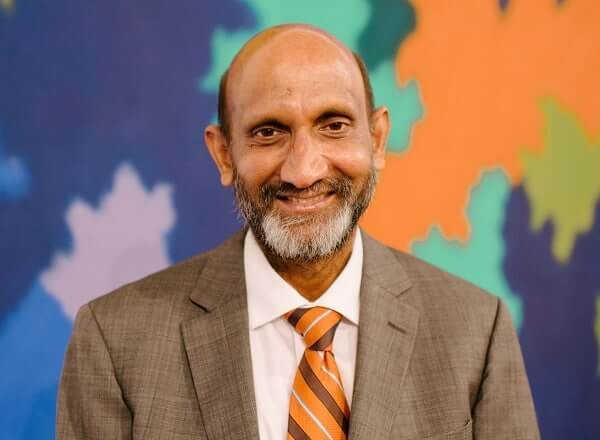Chennupati Jagadish receives our nation’s highest civilian honour, a Companion of the Order of Australia
In 1990, when Chennupati Jagadish accepted a two-year contract with the Australian National University (ANU) to start up a research program in the field of optoelectronics and nanotechnology, little did he know that he was embarking on a prestigious trajectory – one that would lead to the nation’s highest civilian honour, a Companion of the Order of Australia.
The Vallurupalem lad who studied by a kerosene lamp and walked miles to his nearest high school in Khammam district of rural Andhra Pradesh, has been recognised for eminent service to physics and engineering; to education as a leading academic, researcher, author and mentor as well as pivotal roles with national and international scientific advisory institutions. His research interests encompass compound semiconductor optoelectronics, nanotechnology, photovoltaics and materials science.
From humble beginnings, the Nagarjuna and Andhra University alumnus went on to get his doctorate from the University of Delhi, where he was later appointed lecturer in Physics and Electronics before being invited for a fellowship at Queen’s University, Canada in the late eighties.
As a distinguished professor of physics at the Australian National University, he heads a $20 million cutting-edge research facility, has five international patents, 40 PhD students, 45 post-doctoral researchers from Australia and overseas, and has 850 papers and several books to his credit. Currently Vice-President of the Australian Academy of Science, he founded the Australian Nanotechnology Network and helped initiate the international conference on nanoscience. He is also serving as Director of the Australian National Fabrication Facility, besides holding honorary positions at the University of Electronic Science and Technology of China in Chengdu, the University of Tokyo, Anna University and Nanjing University.
Well recognised as a pioneer in the exciting new world of nanotechnology, Prof. Jagadish’s particular expertise is energy efficient nanofabrication which has huge potential in the field of communications, data storage, solar cells and medical applications.
“It is very rare for a scientist to be bestowed this award, particularly someone from a developing economy, so I am humbled, honoured and grateful,” Prof. Jagadish told Indian Link. “This is a wonderful recognition of the work, my research group at the Australian National University in the field of semiconductor optoelectronics and nanotechnology undertakes.”
Prof. Jagadish has dedicated this award to his two high school teachers, who wholeheartedly embraced the motivated student into their lives, inspiring a lifelong passion for science and technology while also instilling core values of simple living and high thinking.
“They taught me self-discipline, perseverance and dedication. They shaped my character and moulded me as a person,” he acknowledged.
Never, ever give up, is his sound advice to aspiring scientists. As a post-doctoral student seeking to widen his horizons, his applications were constantly knocked back. So when an opportunity arose in Canada for a new research experiment, he immediately seized it. Since then, there has been no looking back.
Championing the cause of science in Australia, Prof. Jagadish sees himself as an academic father who finds pride and joy in working with bright young minds.
“Science, particularly physics, allows us to discover how things work. It is very rewarding. It teaches innovation and entrepreneurship, logical thinking, critical reasoning and problem solving, essential qualities that set you up for any future career pathway. Today, my students are scattered everywhere and have found success in many unexpected areas,” he remarked.
Prof. Jagadish firmly envisions STEM-enriched education as the future of any knowledge-based economy. While emerging nations value science and technology, it is too often taken for granted in developed economies, he lamented.
Working closely with Australia India Strategic Research Fund, Prof. Jagadish and his wife Vidya have set up an endowment fund to help support students and researchers from developing countries to visit ANU’s physics and engineering department.
He hopes to continue to be a strong statesman and mentor for the next generation of scientists, and is preparing for the 93rd International Optoelectronic conference, from 2-11 February, which will host more than 2500 delegates.
READ ALSO: Indian-Australians in Australia Day honours 2016




